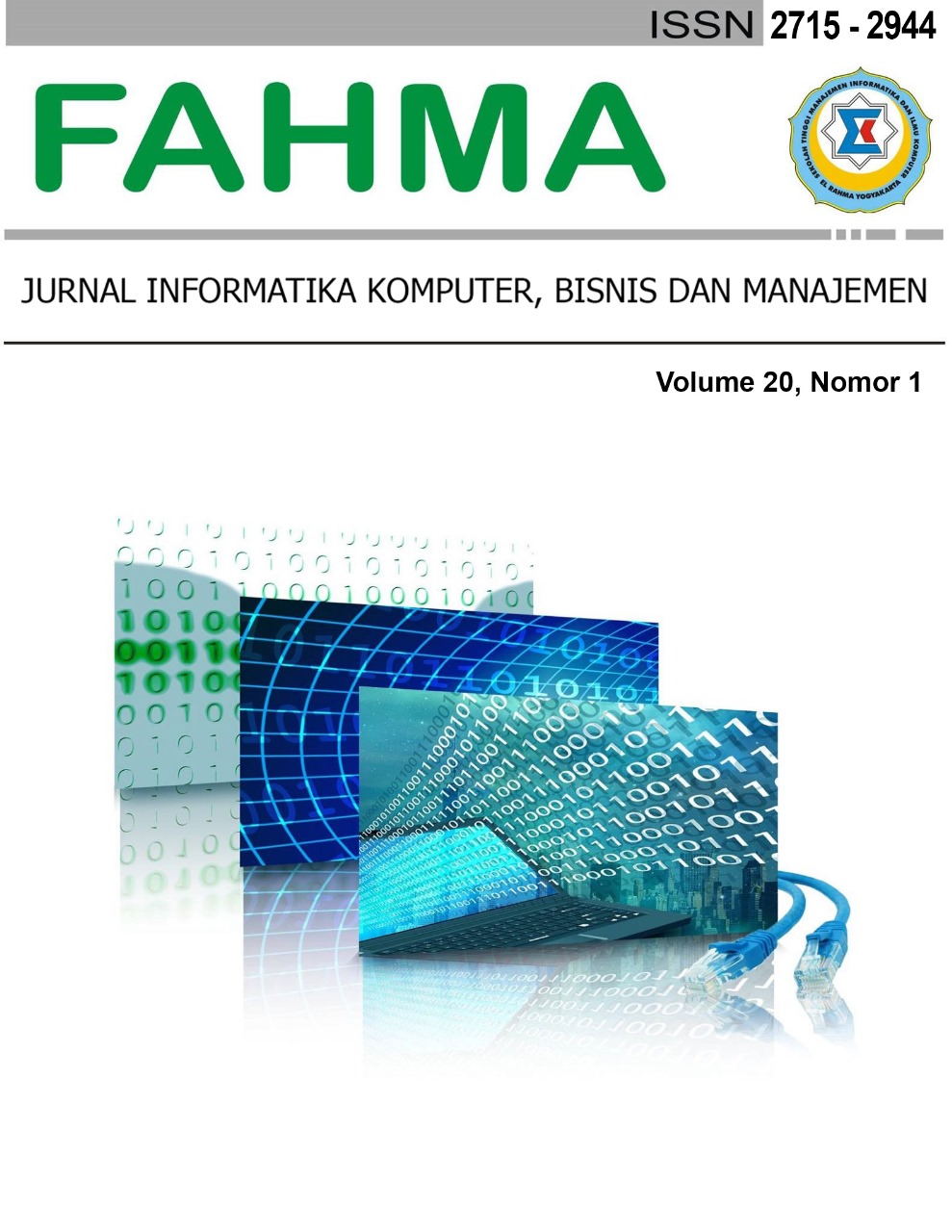SISTEM MONITORING TEMPAT SAMPAH BERBASIS IOT MENGGUNAKAN ESP32
DOI:
https://doi.org/10.61805/fahma.v20i1.45Kata Kunci:
IOT, internet, microcontrollerAbstrak
The development of technology in today's era is growing rapidly, allowing the use of computers in the future to dominate human work, one of which is handling waste. The problem that often occurs is the accumulation in the dump because it is full, causing environmental pollution.
One of them is IoT (Internet of Things) which can control electronic equipment remotely via internet media. The use of this technology for example in regulating the opening and closing of the trash can, the introduction of objects that use sensors and are controlled via a microcontroller. Electronic components in which there is an interconnection system between the Microprocessor, RAM, ROM, I / O interface, as well as a number of peripheral instructions. If a microprocessor is combined with I/O and memory (RAM/ROM) it will produce a microcomputer, a single-chip microcomputer is usually called a microcontroller.
From the above problems, a more effective trash can can be made using volume control to help people throw away in the trash by knowing in advance the condition of the trash bin is empty or full using ESP32, which can be monitored from an android smartphone using the blynk application
Unduhan
Referensi
Ismail, M., Abdullah, R. K., & Abdussamad, S. (2021). Tempat Sampah Pintar Berbasis Internet of Things (IoT) Dengan Sistem Teknologi Informasi. Jambura Journal of Electrical and Electronics Engineering, 3(1), 7–12. https://doi.org/10.37905/jjeee.v3i1.8099
Yahya, R. (2018). Purwarupa Kotak Sampah Pintar Berbasis IoT (Internet Of Things). Agustus, 1–15.









